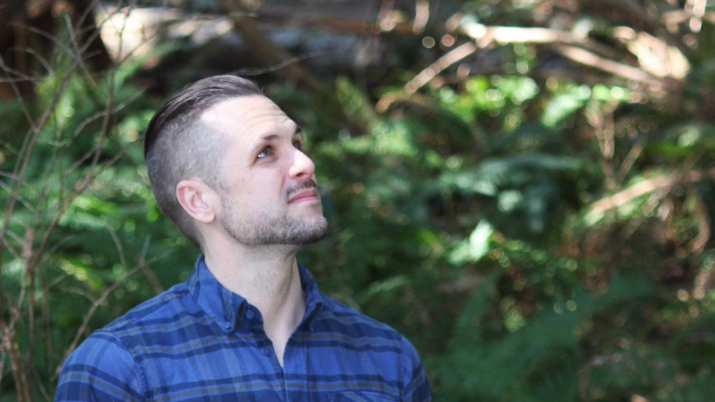
Meet Dr. David King: a lecturer in the Department of Psychology at UBC. He currently leads undergraduate courses in personality, health psychology, the psychology of death and dying, and sex and gender. We decided to ask him some questions, and help our community to get to know him better!
First of all, what attracted you to teaching?
I first started teaching because I really wanted to challenge myself. I’m an introvert, and I also deal with a fair amount of social anxiety, so teaching was something that took me out of my comfort zone. I hated public speaking when I was young, and even in university, participating during class was a big source of anxiety for me. But in graduate school, public speaking was necessary. And even outside of an academic context, I understood the value of developing that skill. So, when the opportunity presented itself to teach a class of my own, I ran with it. I knew that at the very least, it was a great opportunity for personal growth.
“What attracts me to teaching now is the opportunity for engagement. I love engaging with students, I love talking about science, and I’ve learned over the years that I also love moderating discussions.At the end of the day, if I can contribute in some small way to the evolution of human thought; if I can help people think about themselves or the world in a new way, I feel pretty satisfied.”
How would you describe your approach to teaching?
I would describe my approach to teaching as engaging, collaborative, and transformative. It’s important for me to engage with my students in critical thinking and discourse so that the classroom environment feels more collaborative. I like to approach questions with my own open-mindedness and humility, and I encourage my students to do the same. I don’t see my role as one of standing authority (as if I hold all of the knowledge), but rather one of guidance, facilitating discussion in a way that fosters insight, even for myself. In the end, I hope that my teaching is transformative in such a way that students have learned something new about the world (or about themselves) that they can carry with them, beyond the classroom. And maybe, hopefully, they can use that knowledge to make a difference.
What can you learn from your students?
I’ve always valued learning about the lived experiences of my students. When they share their own stories and experiences as they relate to course content, my own understanding of the content is improved. As a teacher, it’s the diversity of the student body at UBC that presents the greatest opportunity for learning, I believe. We all have a lot to learn from one another.
“Hearing about the lived experiences of others allows me to better contextualize the content in my classes. It allows me to be more attentive to nuance so that I can approach future discussions and classes with greater sensitivity and compassion.”
What learning or studying advice do you have for your students?
Learn to understand, not just to know. And relate what you’re learning to your own life, in some way, whenever you can. Contextualize it within your world and your experiences, and find personal examples to rely on. Learning is always personal. It’s a personal experience. So make it personal, whenever possible, and your understanding of whatever it is you’re learning will be enhanced. Otherwise, it will always be at arm’s length, and therefore too easy to lose.
Do you have a motto, favourite quote, or song lyric?
I’ll give you a motto and quote, if I may (they go hand-in-hand): We’re all in this together, so, let’s figure out how to make this work. As William James said, “We are like islands in the sea, separate on the surface but connected in the deep.”
What do you like to do in your free time?
Something that most of my students don’t know about me is that I’m a very creative person. I particularly love writing (and always have), both fiction and non-fiction. I consider writing one of my true passions in life. And I’m a pretty big movie buff (especially sci-fi). There’s something about the art of storytelling that has always really intrigued me, and science fiction has this amazing ability to imagine what’s possible and what could have been.
I also love cooking (I’m a pretty good cook) and I like to get to the gym as often as possible. (Staying healthy is another passion of mine.) But most of my spare time is spent with our two rescue dogs, Hunter and Scout—hiking on trails, swimming in the ocean, and spending time outdoors.
“I’m a big animal lover, and I've always had a great affinity for the natural world. Maintaining those connections with other life is a priority for me. It’s a source of true happiness in my life, even when things get tough.”


